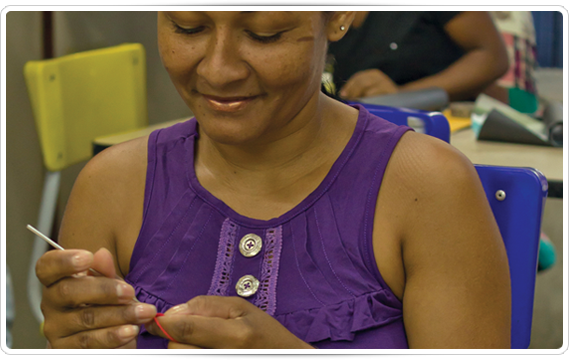Projects
Asta Social Business
Project Overview
Asta, a social business and producers/direct-sales network, has worked since 2008 to "transform lives by producing 'for good'"-promoting the production and distribution of quality goods that also do good for those in the network and Brazilian society at large. Founded and headquartered in Rio de Janeiro, Asta seeks to decrease inequality, increase market access for low-income artisans and entrepreneurs-especially women-and mobilize the consumer market for socially and environmentally beneficial goods. Asta works with over 600 low-income artisans in small producer groups to provide training that increases quality and production level of hand-made goods, especially from recycled materials-"upcycling" discarded goods. The organization also engages large corporations with an interest in sustainability and socially conscious projects to use their used materials and packaging to create exclusive products.
Additionally, Asta has created the first direct-sales model of "for good" products in Brazil, and is nationally referenced for its business innovations. This social business aims to create a link between producers and consumers through high-quality, sustainable products that can be traced from source material to specific artisan to direct-sales vendor to consumer.
How to Apply this Project
Asta works through several methods to promote sustainable and socially beneficial production of clothes, accessories, home goods, art, and stationery, among other items. The direct-sales model at the heart of Asta's original model goes hand-in-hand with the organization's efforts to empower its artisan groups, which must already have proven design and production records. Through this model, the production group receives 50 percent of each item purchased, the associate (reseller) receives 22 percent, and Asta receives 28 percent for the cost of producing a catalogue, stock, and logistics. Another way Asta promotes sustainability includes contracting with businesses to collect their byproducts and "waste" for sellback as finished toys and bric-à-brac made by the Asta production groups. Companies such as Coca-Cola, Guaraná Kuat (Brazilian beverage company), and Cantão (upscale clothing company) have worked with Asta to create Carnaval masques, placemats and coasters, and handbags and wallets, respectively. Throughout its operations, Asta seeks to maximize returns for the artisans, promote improved quality of life, ensure a strong business model, and promote conscientious consumption. Asta has received support from the Inter-American Foundation, Avina Foundation, McKinsey Consulting, Accenture, among others, and its founder is an Ashoka Fellow.

Contact Information
Asta Institute Phone: +55 (21) 3217-9967 Email: contato@asta.org.br






